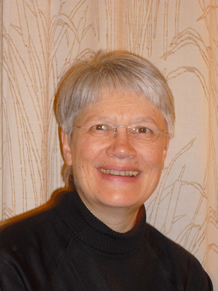
Grace Davie is Professor Emeritus at the University of Exeter. Her research interests lie in patterns of religion in Europe, and how to conceptualise them. How are we to make sense of the growing significance of religion in the modern world with tools and concepts that have emerged (largely) from the 'exceptional' European case? She is also interested in the interactions between religion and welfare, healthcare and law, and their implications for sociological thinking about religion. Her books include Religion in Britain since 1945: Believing without Belonging (1994), Europe: the Exceptional Case (2002) and most recently Religion in Britain: A Persistent Paradox (2015)
In this longer-than-usual episode, Chris and David provide an interlinking narrative between Grace Davie, Joe Webster, Carole Cusack, Jonathan Jong, Paul-Francois Tremlett, Linda Woodhead and Kim Knott, reflecting on current or future developments in the sociology of religion which challenge the ubiquity of the secularization thesis, ...
What is the sociology of religion? What are its particular concerns, dominant themes and defining methodologies? Where did it begin, and how has it evolved? This interview with Grace Davie, the first in our BSA SOCREL series, introduces this important and historically influential approach to the study of religion.
In partnership with the NSRN (Nonreligion and Secularity Research Network), it is our pleasure to bring you the audio recordings of five very important lectures from Grace Davie, Humeira Iqtidar, Callum Brown, Monika Wohlrab-Sahr, and Jonathan Lanman.
The inspiration for this episode came from one of Russell McCutcheon's works which we had encountered through the undergraduate Religious Studies programme at the University of Edinburgh, entitled 'Critics Not Caretakers: Redescribing the Public Study of Religion'. The result is this compilation of differing opinions and interpretations ...
In the 1960s, most sociologists consciously or unconsciously bought into idea of the 'death of god' - religion became effectively invisible to academia. Throughout the 1980s and 90s, a number of events - most notably the 'Satanic Verses' controversy - dramatically increased the 'visibility' of religion: it became a political problem. Now, in the 21st century, ...
This work is licensed under a Creative Commons Attribution- NonCommercial- NoDerivs 3.0 Unported License.
The views expressed in podcasts, features and responses are the views of the individual contributors, and do not necessarily reflect the views of The Religious Studies Project or our sponsors. The Religious Studies Project is produced by the Religious Studies Project Association (SCIO), a Scottish Charitable Incorporated Organisation (charity number SC047750).